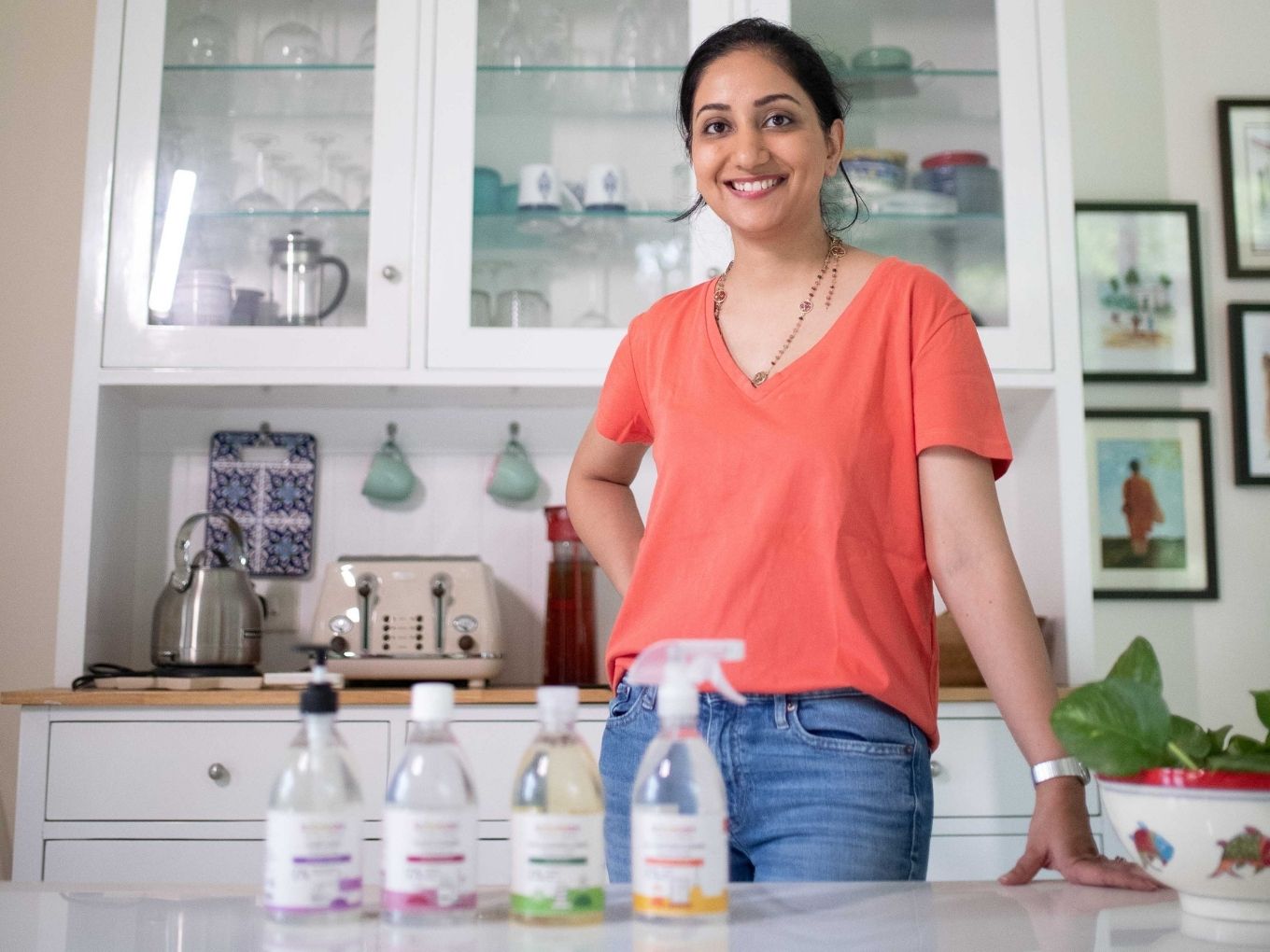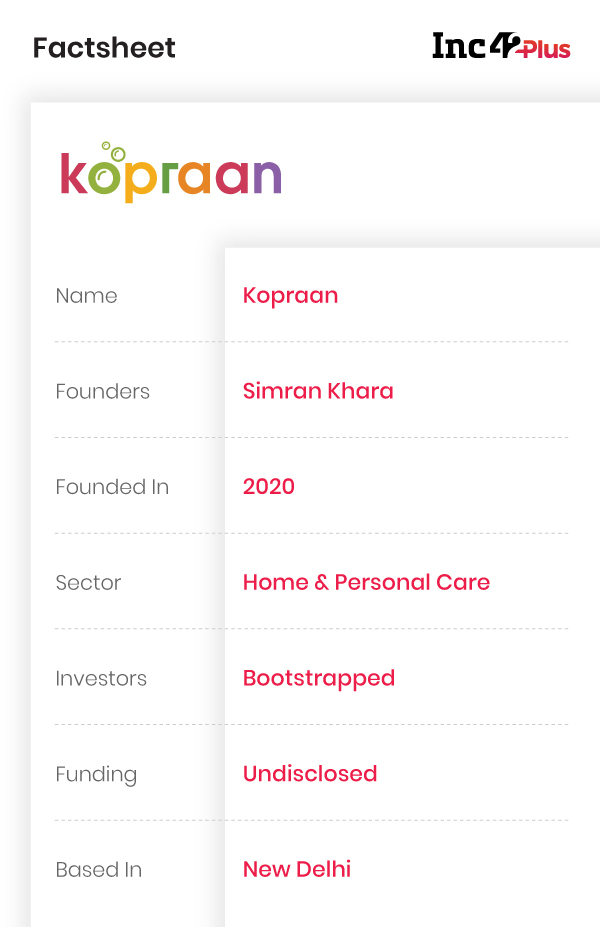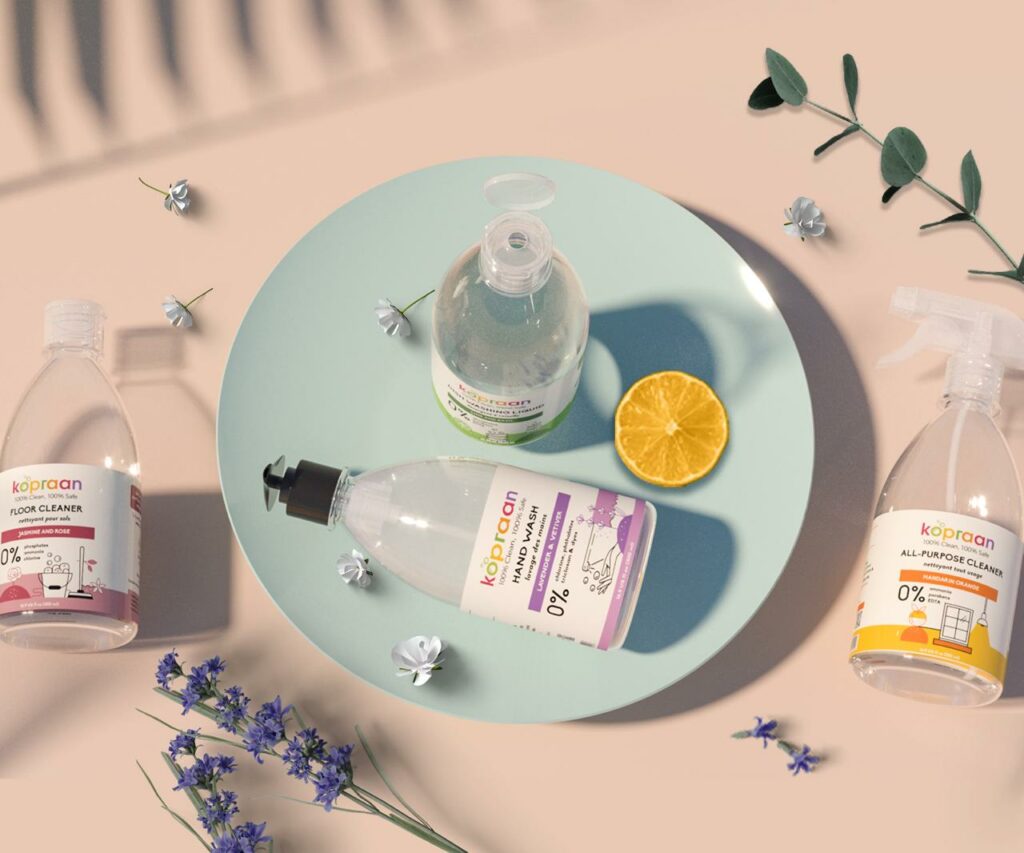
Often entrepreneurs move from corporate or management roles in one sector and startup in another. It’s more than just hope that the idea will bring them success and also more than just about the desire to do something else. More often than not, it’s about the timing to enter the market or for the product.
This kind of automatic product-market fit is rare, but black swan events usually throw up such opportunities as global investors have also indicated.
For Simran Khara, timing was everything. After working across strategy, operations and monetization at McKinsey & Co and Star TV for over a decade, and more recently as CEO of digital media startup Juggernaut Books, Khara has plenty of experience in leading startups. And with her focus on the direct-to-consumer (D2C) segment and home and hygiene products, she also has the right product and direction given the state of the market and the unprecedented demand for hygiene and sanitation. That’s perhaps why she is so bullish on her new venture Kopraan.
“I went about it very scientifically. Having managed a large portfolio of companies in my previous stints and running a startup, one thing was clear that the home and personal care categories had a large addressable market,” Khara told Inc42.

The ‘Cancerous’ Hygiene And Personal Care Industry
While she is still working with Juggernaut Books as CEO, she would be transitioning out of the company by the end of this year. But in the beginning of the year, Khara noticed a wide gap in plant-based and non-toxic home and personal care categories in the D2C channels.
“Surprisingly, there is no regulation or certification process in the country, when it comes to manufacturing house clearing and personal care products,” according to the founder.
That’s despite the fact that a large majority of these products available in the market contain harmful carcinogenic chemicals. These include ethylenedi aminetetraacetic acid (EDTA), ammonia, synthetic dyes, triclosan, chemical preservatives and parabens among others. “The bright yellow coloured liquid in the dishwashing gel does not contain the power of ‘hundred lemons,’ instead it contains harmful synthetic chemicals and dyes that are made to look attractive to the buyers,” quipped Khara.
Kopraan makes it a point to mention the raw materials and ingredients used in the products on the packaging, so that there is no doubt on what goes into the cleaning or hygiene products. Over the past six-to-seven months, her team has developed formulations for plant-based hygiene products with a clear focus on the right product design and raw materials
Currently, the company uses plant-based derivatives like coconut and sugarcane extracts to make its products (lauryl glucoside and decyl glucoside). In the early days, procuring material was a challenge. “I was initially procuring some of the raw materials for our products from a vendor in China, but because of the huge issues around import, we had to move it to South Korea. Similarly, some of our products were stuck at the warehouse because it was located in the containment or red zone.”

Debate For Kopraan: Going D2C Vs Traditional Retail
Clearly, getting off the ground was not easy for Kopraan, so why the push for D2C and not just a retail brand? “The idea was to get our foot out of the door. So, the journey of going from zero to 100 is pretty much crucial for us,” she added.
Besides being a native D2C brand, Kopraan also has a presence on ecommerce marketplaces such as Amazon, Flipkart and others. Its primary target is women in the age group of 25-35, young parents and pet owners in metro and Tier 1 cities. “Ultimately, we are not a lifestyle brand, so we need to build our own community of people and educate them about the nuances of plant-based, eco-friendly and non-toxic products,” the founder told Inc42.
Besides collaborations with social media influencers to drive engagement, Kopraan is also working with suppliers to do large scale offline sampling of its products to drive more sales through all its channels and create product awareness. Of course product development also plays a crucial role in creating awareness and that includes certifications, which institutional bodies are on the lookout for. While Kopraan is focussed on consumers, the potential upside of institutional sales such as hospitals, hotels and other facilities cannot be ignored.
“We are in the process of getting the USDA certification in the coming months,” Khara told us, which would definitely open up more markets for the organic cleaning and hygiene products.
Besides Kopraan, other D2C home care and personal care brands in the country include The Better Home, Mamaearth and Santic (marketed and developed by Zipped Solutions) among others. “Currently, the market is still in a nascent stage. The more eco-friendly, plant-based and safe home and personal care startups emerge in the space, the better it is for the industry,” Khara said.
Having not raised external funding, Kopraan is in bootstrap mode and gearing up for more products. “We have about 10-12 home and personal care products in our portfolio and will be launching four products to test the waters. In the coming months, we will be adding more home and personal care products as we scale, and are really exploring the international markets.”
[With inputs from Nikhil Subramaniam]
The post Timing Is Everything: Why A Former McKinsey & Star Exec Ventured Into Home Hygiene Products appeared first on Inc42 Media.
Author: Amit Raja Naik
Source : https://inc42.com/startups/why-a-former-mckinsey-star-exec-entered-hygiene-products-with-kopraan/
Date : 2020-09-21T08:42:28.000Z
